JAKARTA/KUALA LUMPUR: Malaysia’s Prime Minister Anwar Ibrahim and Indonesia’s President Prabowo Subianto will meet in Jakarta on Tuesday (Jul 29) to resume an annual consultation between both countries’ leaders that has been on pause for eight years.
The two countries’ long-running dispute over an oil-rich area in the Celebes Sea is expected to top the agenda of the first such meeting between the two leaders since they took office, say analysts.
The experts expect some progress on this thorny issue though they do not expect a resolution.
Malaysia and Indonesia have overlapping claims over sea blocks ND6 and ND7, which Putrajaya calls the Sulawesi Sea and Jakarta calls Ambalat.
Boosting economic cooperation against the backdrop of trade tariffs by the United States will be another area Anwar and Prabowo will likely touch on, the analysts added.
While the talks will focus on bilateral issues, the leaders are also expected to discuss the escalating conflict between fellow Association of Southeast Asian Nations (ASEAN) members, Thailand and Cambodia.
Convened alternately between Malaysia and Indonesia, the annual consultation represents the highest platform for leaders to strengthen relations as well as to deepen strategic and comprehensive cooperation.
But since the previous edition in Sarawak in 2017, the consultation has not been held due to the COVID-19 pandemic and successive changes in Malaysia’s premiership, analysts said.
One possible reason that the talks are being resumed now is that Anwar and Prabowo have a close personal relationship which has existed for decades, said analysts.
Anwar attended Prabowo's inauguration in Oct 2024, and since then, they have met at least thrice for four-eye talks.
Jamil Ghani, a doctoral candidate at Singapore’s S Rajaratnam School of International Studies (RSIS) who has researched Malaysia's foreign policy said that the strong working relationship between the two leaders is grounded in personal familiarity and mutual respect.
“That rapport creates a conducive environment for addressing sensitive issues like Ambalat without political grandstanding,” he said.
This year, the leaders of both countries will witness the exchange of four Memoranda of Understanding in the areas of land borders, health cooperation, and information and communications technology, according to a statement released by Malaysia’s Ministry of Foreign Affairs on Sunday.
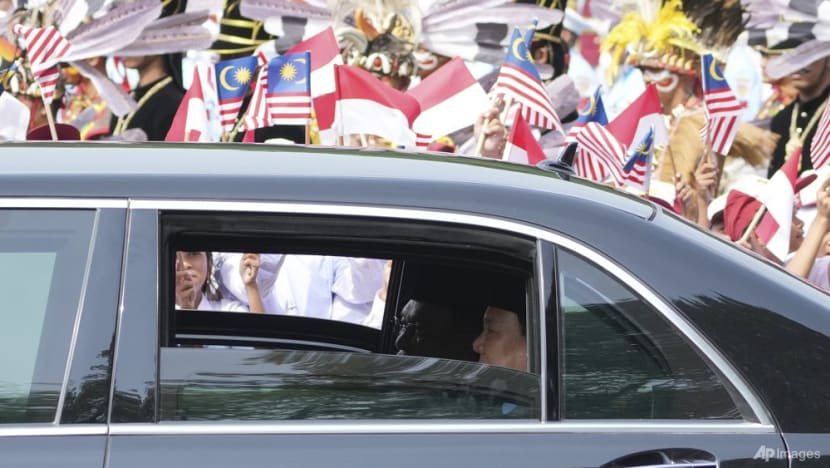
THORNY ISSUES
One of the most significant issues the two countries are facing is a maritime dispute in an oil-rich area of the Sulawesi Sea, said analysts.
“Indonesia and Malaysia will likely talk about a unique proposal to develop the area in the Sulawesi Sea, the Ambalat area,” said Randy Nandyatama, an international relations lecturer at Yogyakarta’s Gadjah Mada University.
When Anwar and Prabowo met in Jakarta on Jun 27 to prepare for the annual consultation, they agreed to develop the block jointly.
“Whatever we find in the sea, we will exploit it together,” said Prabowo at a joint press conference with Anwar that day.
Meanwhile, Anwar said: “We should start joint development now to benefit both nations and support the local population.”
However, when members of parliament from Sabah, the Malaysian state closest to the disputed area, questioned Anwar in parliament on Jul 22, he stressed that no final agreement had been reached, as discussions were still ongoing.
While Anwar said he would continue with the approach of negotiating territorial disputes with a “friendly country” such as Indonesia, he maintained that the principle of sovereignty remained Malaysia’s top priority.
The dispute dates back to 1979, when Malaysia published a map indicating its territorial waters and continental shelf boundaries. Indonesia and other neighbours such as Brunei, the Philippines, Thailand and Vietnam did not recognise this map.
The Sulawesi Sea dispute has been difficult to resolve as it involves overlapping claims of both maritime boundaries and the sovereignty of two island features, Pulau Sipadan and Pulau Ligitan.
In 2002, the International Court of Justice awarded the two islands to Malaysia, but did not settle the overlapping maritime boundaries. The area has experienced periodic flashpoints over the years as the countries have attempted to resolve the dispute.
Adib Zalkapli, director of geopolitical consultancy Viewfinder Global Affairs, said there are expectations that significant progress will be made on the Sulawesi Sea issue.
“The two countries could potentially agree on joint development efforts to extract resources in the area without resolving the overlapping claims. Malaysia has done this before with Thailand,” he said.
While RSIS’ Jamil said the upcoming consultation is unlikely to yield a full resolution, he believes the talks could produce a framework agreement or joint statement outlining the terms of a joint development authority.
Sabah Chief Minister Hajiji Noor will be present in Malaysia’s delegation for the meeting, a move Jamil called “politically significant”.
“Including Sabah at the negotiating table ensures local buy-in, lends legal credibility, and helps the federal government manage domestic sensitivities around sovereignty,” he said.
Earlier discussions between the countries did not see adequate Sabahan representation, said Bridget Welsh, an honorary research fellow at the University of Nottingham Malaysia's Asia Research Institute.
She told CNA that Hajiji’s attendance is important.
“I think there needs to be broader stakeholder buy-in on the sensitive border issues … For Sabah, what will be clear is their share of the oil revenue,” she told CNA.
Randy from Gadjah Mada University stated that the proposal to develop the disputed area jointly requires further discussion.
“The Malaysian side will need to consult parliament on the issue, while the Indonesian government will also need to do the same with its House of Representatives,” he said.
Analysts said Anwar and Prabowo could also discuss other long-standing thorny issues, including the treatment of Indonesian migrant workers in Malaysia and the problem of transboundary haze.
However, it is unclear whether they will be discussed in detail, given that Malaysia's manpower and environment ministers are not among the delegates.
The treatment of Indonesian migrant workers in Malaysia has been a recurring issue for both countries. A significant proportion of these workers are irregular migrants who often work in very poor conditions in the domestic, construction and agricultural sectors.
Forest and peatland fires are a primary cause of the recurring issue of transboundary haze, an annual problem for Indonesia and its neighbours, including Malaysia, Singapore, and southern Thailand.
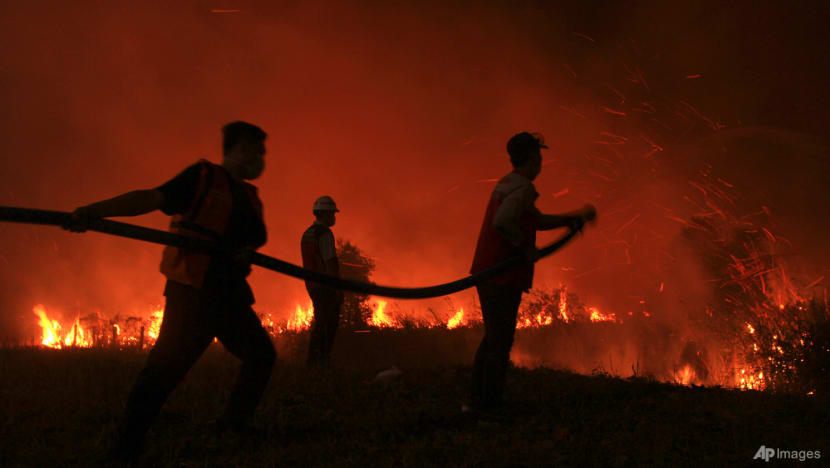
DEEPENING COOPERATION
When Anwar and Prabowo meet on Tuesday, they will also talk about trade and investments, analysts said.
Jamil from RSIS said the two countries are set to formalise a plan to open more than 10 new land crossings along the Kalimantan-Sabah-Sarawak border, backed by RM10 billion (US$2.4 billion) in infrastructure funding.
“The initiative - driven in part by Indonesia’s planned capital relocation to East Kalimantan - aims to boost cross-border trade, tourism and security,” he told CNA, referring to Indonesia’s new capital, Nusantara.
Relevant ministries and agencies will build the infrastructure, including access roads and communication towers, said Jamil.
The new entry points will only become operational after a memorandum of understanding (MoU) is finalised, he added.
Jamil also said that the leaders’ talks could also be expected to yield a deepening of defence cooperation focused on counter-terrorism, intelligence sharing, and joint maritime security.
According to Malaysia’s foreign ministry, Anwar will be accompanied by Sabah’s Chief Minister Hajiji Noor, Sarawak’s Premier Abang Johari Openg, Minister of Foreign Affairs Mohamad Hasan, Minister of Home Affairs Saifuddin Nasution Ismail, Minister of Education Fadhlina Sidek, and Minister of Investment, Trade and Industry Tengku Zafrul Abdul Aziz.
When it comes to trade, Agung Surya, an international relations expert from the University of Udayana, said the two leaders would likely discuss the tariffs US President Donald Trump wants to impose on countries starting on Aug 1.
Indonesia has already secured a deal with the US, where goods from Southeast Asia’s largest economy will receive a 19 per cent tariff when exported to the world’s largest economy.
Meanwhile, US products entering Indonesia will be subject to a zero per cent tariff.
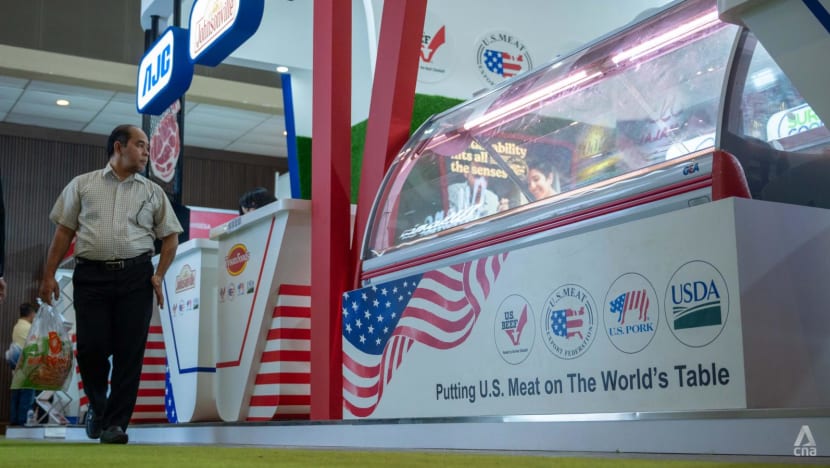
Malaysia, on the other hand, has yet to close a deal with Washington.
“Perhaps Malaysia thinks they could learn (from Indonesia) as they are still negotiating with the US, since they are facing 25 per cent tariffs,” said Agung.
"So, this is perhaps an agenda that is quite urgent amid global economic turmoil, and efforts to stabilise the situation and provide certainty for economic investments,” he added.
International relations lecturer Teuku Rezasyah from Padjajaran University in Bandung said that the different tariffs Trump wants to impose on Southeast Asian countries would likely be addressed.
“This must be addressed together,” said Rezasyah.
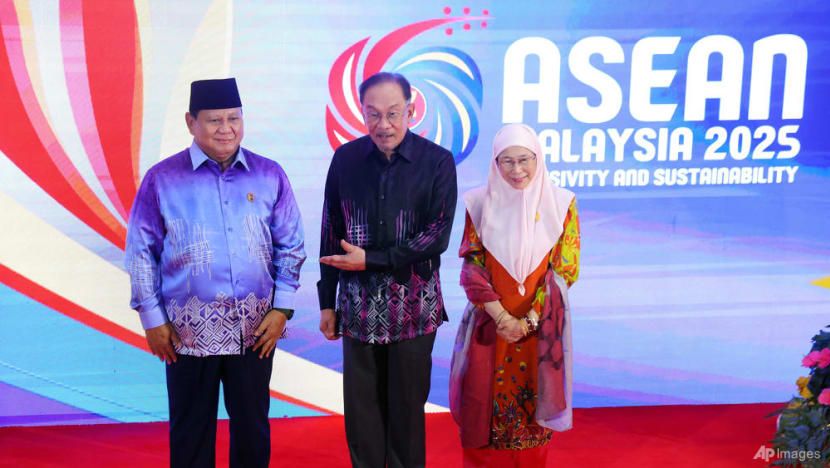
REGIONAL AND MULTILATERAL ISSUES
A regional issue likely to come up in the talks is the ongoing conflict between two Southeast Asian countries, Thailand and Cambodia, said analysts.
Malaysia is the current rotating chair of ASEAN, which also includes Indonesia, Cambodia, and Thailand as its members.
Cambodia and Thailand agreed on Monday to an"immediate and unconditional" ceasefire, following talks in Kuala Lumpur mediated by Anwar.
Thailand’s acting Prime Minister Phumtham Wechayachai and Cambodian Prime Minister Hun Manet attended the mediation talks in Malaysia over their deadly border conflict.
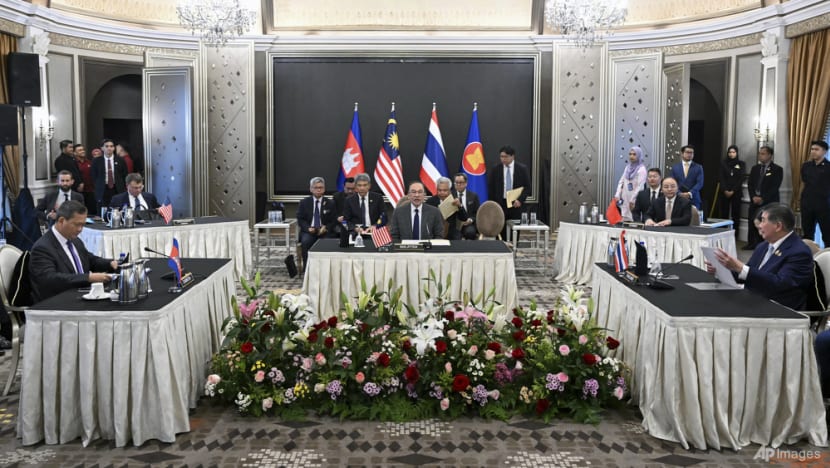
According to a joint statement issued by the three countries, Malaysia is also prepared to coordinate an observer team to ensure the implementation of the ceasefire.
Rezasyah from the University of Padjajaran told CNA that Anwar and Prabowo will likely talk about the latest situation concerning Cambodia and Thailand.
Anwar will still likely want to consult Indonesia about the next steps in the peace process because, as the current chair of ASEAN, he needs the support of fellow members, especially Indonesia, which is also a founder of the group, said Rezasyah.
ASEAN has a Treaty of Amity and Cooperation Southeast (TAC) to promote peaceful coexistence and friendly cooperation among member states.
Rezasyah said ASEAN countries such as Indonesia would likely want the implementation of the ceasefire agreement to be aligned with the TAC.
Thailand and Cambodia have been exchanging heavy artillery since last Thursday in a conflict that has claimed the lives of over 30 people.
Clashes have escalated into the worst fighting between the two neighbours in more than a decade.
Anwar, as ASEAN chair, reached out to the leaders of Cambodia and Thailand on Thursday when the fighting broke out.
Another global issue that Anwar and Prabowo are likely to address during the annual consultation is the war in Gaza, according to analysts.

